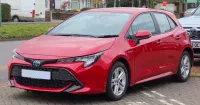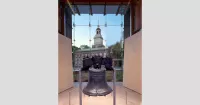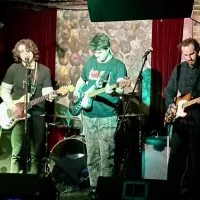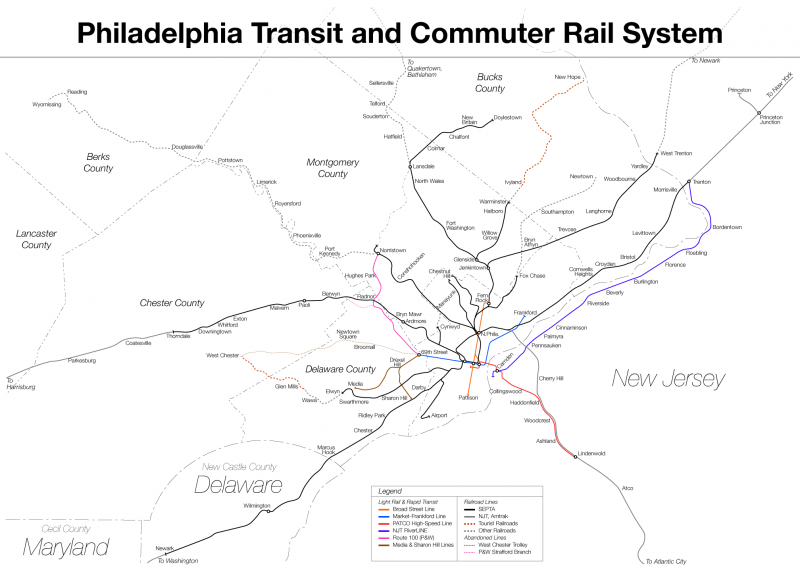SEPTA, the Southeastern Pennsylvania Transportation Authority, is a regional public transportation agency serving approximately four million people in and around Philadelphia, Pennsylvania. It operates a diverse network, including bus, rapid transit, commuter rail, light rail, and electric trolleybus services. Beyond operation, SEPTA also manages projects focused on maintaining, replacing, and expanding its existing infrastructure, facilities, and vehicle fleet.
4 hours ago : SEPTA Adjusts Service in Philadelphia Amidst Intense Blizzard and Heavy Snowfall.
A Nor'easter brought heavy snow and strong winds to the Philadelphia region, causing SEPTA to make service adjustments. Blizzard conditions intensified, reducing visibility and impacting travel. These adjustments ensured safety during the winter storm.
1902: Philadelphia Rapid Transit Company Formed
In 1902, the Philadelphia Rapid Transit Company was formed.
1913: Original Proposal for Roosevelt Boulevard Subway
In 1913, the original proposal for the Roosevelt Boulevard Subway dates back but construction has remained elusive.
1940: Creation of the PTC
In 1940, the PTC had been created with the merger of the Philadelphia Rapid Transit Company (formed in 1902), and a group of smaller, then-independent transit companies operating within the city and its environs.
August 17, 1963: SEPTA Created
On August 17, 1963, SEPTA was created by the Pennsylvania General Assembly to coordinate government funding to various transit and railroad companies in southeastern Pennsylvania.
February 18, 1964: SEPTA Commenced Operations
On February 18, 1964, SEPTA commenced operations.
November 1, 1965: SEPTA Absorbed Predecessor Agencies
On November 1, 1965, SEPTA absorbed two predecessor agencies.
1966: Reading Company and Pennsylvania Railroad Lines Operated under Contract to SEPTA
By 1966, the Reading Company and Pennsylvania Railroad commuter railroad lines were operated under contract to SEPTA.
February 1, 1968: Pennsylvania Railroad Merged with New York Central
On February 1, 1968, the Pennsylvania Railroad merged with the New York Central railroad to become Penn Central.
September 30, 1968: SEPTA Acquired Philadelphia Transportation Company
On September 30, 1968, SEPTA acquired the Philadelphia Transportation Company (PTC).
1968: SEPTA Board Founding
At its founding in 1968, the SEPTA board had 11 members.
January 30, 1970: SEPTA Acquired Philadelphia Suburban Transportation Company
On January 30, 1970, SEPTA acquired the Philadelphia Suburban Transportation Company, also known as the Red Arrow Lines.
June 21, 1970: Penn Central Filed for Bankruptcy
On June 21, 1970, Penn Central filed for bankruptcy.
1974: Construction of the airport line
In 1974, the City of Philadelphia began construction of the airport line.
March 1, 1976: SEPTA Acquired Schuylkill Valley Lines
On March 1, 1976, SEPTA acquired the transit operations of Schuylkill Valley Lines, known today as the Frontier Division.
1976: Conrail Took Over Penn Central's Assets
In 1976, Conrail took over Penn Central's assets along with those of several other bankrupt railroads, including the Reading Company.
1976: Cars built on the lines
Most of the cars used on the lines were built between 1976 and 2011.
1977: SEPTA and Reeder's Inc. Bus Operations
In 1977, SEPTA and Reeder's Inc. partnered to operate three bus routes out of West Chester: Route 120 (West Chester to Coatesville), Route 121 (West Chester to Paoli), and Route 122 (West Chester to Oxford).
1978: AM General vehicles
From 1978–79 SEPTA used AM General vehicles.
1980: Prototype K-car delivered and tested
In 1980, a prototype of the K-cars used on the SEPTA Subway-Surface trolley lines was delivered and tested before Kawasaki began building the full fleet in 1981.
1981: Kawasaki builds K-cars for SEPTA Subway-Surface trolley lines
Beginning in 1981, Kawasaki built the 112 vehicles used on the SEPTA Subway–Surface trolley lines, known as "K-cars".
1981: Establishment of Transit Police Department
SEPTA established its current Transit Police Department in 1981.
July 1982: Route 122 Replaced by Route 91
In July 1982, SEPTA replaced Route 122 service with its own Route 91, after only one year of service.
October 1982: Route 121 Replaced by Route 92
In October 1982, Route 121 was replaced by SEPTA's Route 92, which continues to operate today.
1982: Kawasaki B-IV cars built for Broad Street Line
Between 1982 and 1984, Kawasaki built B-IV cars for the Broad Street Line, which are stainless steel and include cars with operating cabs at both ends and some with only a single cab.
1982: SEPTA Orders Buses from Neoplan USA
In 1982, SEPTA ordered buses from Neoplan USA, marking the largest purchase for Neoplan at the time and SEPTA's largest to date.
January 1, 1983: SEPTA Took Over Operations and Formed the Railroad Division
On January 1, 1983, SEPTA took over commuter services operations from Conrail and acquired track, rolling stock, and other assets to form the Railroad Division.
November 1983: SEPTA turned over Bucks County routes to Frontier Division
In November 1983, SEPTA turned over the Bucks County routes (formerly Trenton-Philadelphia Coach Line Routes, a subsidiary of SEPTA) to Frontier Division.
1983: SEPTA Orders Neoplan Buses
In 1983, SEPTA, along with other transit operators in Pennsylvania, ordered 1,000 Neoplan buses of various lengths, with SEPTA receiving 450 buses from this order.
1984: Kawasaki B-IV cars built for Broad Street Line
Between 1982 and 1984, Kawasaki built B-IV cars for the Broad Street Line, which are stainless steel and include cars with operating cabs at both ends and some with only a single cab.
1984: Completion of the airport line
In 1984, the City of Philadelphia completed construction of the airport line.
1984: Center City Commuter Connection Tunnel Opening
In 1984, with the construction and opening of the Center City Commuter Connection Tunnel, lines were paired such that a former Pennsylvania Railroad line was coupled with a former Reading line, resulting in route designations numbered R1 through R8.
1984: Volvo 10BM Articulated Buses
In 1998, SEPTA ordered 155 articulated buses from Neoplan. These buses replaced the 1984 Volvo 10BM 60-foot articulated buses.
1986: SEPTA Purchases Additional Neoplans
In 1986, SEPTA purchased additional Neoplans without rear wheelchair lifts.
1987: SEPTA Purchases Additional Neoplans
In late 1987, SEPTA purchased additional Neoplans with rear wheelchair lifts.
1989: SEPTA Purchases Additional Neoplans
In 1989, SEPTA purchased additional Neoplans with rear wheelchair lifts.
1991: State Legislature Added Members to SEPTA Board
In 1991, the state legislature added four additional members to the SEPTA board, increasing their influence.
1992: Krapf Purchases Reeder's Operation
In 1992, Krapf purchased the Reeder's operation and designated the remaining (West Chester to Coatesville) bus route as Krapf Transit "Route A".
1993: Delivery of N-5 cars for Norristown High Speed Line
In 1993, the Norristown High Speed Line received its unique class of 26 cars known as N-5s, delivered by ABB after production difficulties.
1996: Reorganization of American Ikarus to North American Bus Industries
Through late 1997, SEPTA replaced the earlier fleet of AK and BD Neoplans (8285–8581) with 400 buses built by American Ikarus and North American Bus Industries which was the same company after a 1996 reorganization.
1997: Adtranz builds M-4 cars for Market-Frankford Line
From 1997 to 1999, Adtranz built M-4 cars for the Market–Frankford Line, representing the line's fourth generation of cars.
1997: Replacement of Neoplan AK and BD Fleets
Through late 1997, SEPTA replaced the earlier fleet of AK and BD Neoplans (8285–8581) with 400 buses built by American Ikarus and North American Bus Industries.
1998: SEPTA Orders Articulated Buses from Neoplan
In 1998, SEPTA ordered 155 articulated buses from Neoplan, replacing the 1984 Volvo 10BM 60-foot articulated buses.
1998: SEPTA Purchases Transmark-29 Buses
In 1998, SEPTA purchased 89 29-foot Transmark-29 buses from National-Eldorado (4501–4580, 4581 received later).
1999: Adtranz builds M-4 cars for Market-Frankford Line
From 1997 to 1999, Adtranz built M-4 cars for the Market–Frankford Line, representing the line's fourth generation of cars.
1999: Metrotrans Legacy Bankruptcy
SEPTA had decided to buy from Metrotrans Legacy, SEPTA's first choice in small buses, but the company filed for bankruptcy in 1999.
2000: Arrival of Transmark-29 Buses
The first of the 29-foot Transmark-29 buses from National-Eldorado began to arrive in late 2000.
2001: Order of low-floor buses from New Flyer
After evaluating sample buses from New Flyer and NovaBus in 1994–96, in 2001, SEPTA ordered 100 low-floor buses (nos. 5401–5500) from New Flyer.
2001: Replacement of diesel buses begins
SEPTA delivered 525 2017–2022 NFI XDE40 hybrid buses to replace all the diesel buses that were delivered between 2001 and 2004.
June 2002: Conversion to Diesel Buses
Until June 2002, five SEPTA routes (29, 59, 66, 75 and 79) were operated with trackless trolleys, but were converted to diesel buses for an indefinite period starting in 2002 and 2003.
2003: Purchase of Hybrid Buses
In 2003, SEPTA purchased two small groups of hybrids, 5601H–5612H.
2003: Retirement of "cutaway" buses
In 2003, SEPTA retired its fleet of buses known as "cutaways", which were built on Ford van chassis and resembled airport car rental shuttles. These buses were replaced with slightly larger cutaway buses on a Freightliner truck chassis.
2003: Suspension of Trackless Trolley Service
In 2003, SEPTA suspended trackless trolley (trolley bus) service, and the 110 AM General vehicles that served SEPTA's five routes were permanently retired.
2003: PCC cars rebuilt by Brookville for Girard Avenue Line reopening
In 2003, the PCC cars on SEPTA's Route 15 (Girard Avenue Line) were rebuilt by Brookville (and renamed PCC II) for the line's reopening, including the addition of air conditioning and a wheelchair lift.
2003: Conversion to Diesel Buses
Until June 2002, five SEPTA routes (29, 59, 66, 75 and 79) were operated with trackless trolleys, but were converted to diesel buses for an indefinite period starting in 2002 and 2003.
2004: Purchase of Hybrid Buses
In 2004, SEPTA purchased two small groups of hybrids, 5831H–5850H.
2004: Replacement of diesel buses completed
SEPTA delivered 525 2017–2022 NFI XDE40 hybrid buses to replace all the diesel buses that were delivered between 2001 and 2004.
2005: New Flyer D40LF buses replaced
In 2021, SEPTA placed an order for 220 New Flyer XDE40 buses with an option for 120 additional buses. These buses replaced the New Flyer D40LF buses that were delivered in 2005.
February 2006: SEPTA Placed Order for New Trackless Trolleys
In February 2006, SEPTA placed an order for 38 new low-floor trackless trolleys from New Flyer Industries.
October 2006: SEPTA Board Voted Not to Order Additional Vehicles
In October 2006, the SEPTA board voted not to order additional vehicles for Routes 29 and 79, and those routes permanently became non-electric.
2006: Order of new low-floor trackless trolleys from New Flyer
In early 2006, SEPTA ordered 38 new low-floor trackless trolleys from New Flyer, to replace SEPTA Neoplan EZs.
June 2007: Pilot Trackless Trolley Arrived for Testing
In June 2007, the pilot trackless trolley from New Flyer Industries arrived for testing.
2007: SEPTA bus Route 306 begins service
In 2007, SEPTA bus Route 306 began service, connecting the Great Valley Corporate Center and West Chester with the Brandywine Town Center.
April 14, 2008: Trackless Trolley Service Resumed
On April 14, 2008, trackless trolley service resumed on Routes 66 and 75.
June 20, 2008: Retirement of AN440 Buses
On June 20, 2008, SEPTA received its first low-floor fleet and retired the last AN440 buses.
August 2008: Delivery of New Trackless Trolleys
Between February and August 2008, the new trackless trolleys from New Flyer Industries were delivered.
2008: Restoration of Trackless Trolley Service
In 2008, the 38 new low-floor trackless trolleys from New Flyer entered service, restoring trackless service on routes 59, 66 and 75.
2008: New Flyer DE40LF buses replaced
In 2021, SEPTA placed an order for 220 New Flyer XDE40 buses with an option for 120 additional buses. These buses replaced the New Flyer DE40LF buses that were delivered between 2008-2009.
2008: Resumption of Trolleybus Service
In the spring of 2008, trolleybus service resumed after a nearly five-year suspension.
2008: Rooftop HVAC units installed
Prior to the 2008 purchase, SEPTA was the first to purchase New Flyer DE40LFs equipped with rooftop HVAC units.
2008: Order for New Flyer hybrid buses placed with delivery starting
SEPTA placed an order with delivery starting in 2008 for 400 New Flyer hybrid buses—with options for up to 80 additional buses to replace the NABI Ikarus buses at the end of their 12-year life.
2008: Order of buses equipped with rooftop HVAC begins
Starting in 2008, SEPTA's revenue from advertisements on the backs of its buses leads the authority to order mainly buses equipped with a rooftop HVAC, and with their rear route-number sign mounted on the roof, especially on 2008–2009 New Flyer DE40LFs.
February 2009: SEPTA bus Route 113 commences
In February 2009, SEPTA bus Route 113 commenced connecting bus service with DART at the Tri-State Mall, allowing service between Delaware County and Delaware, and connecting with DART First State's #13 and #61 bus at the Tri-State Mall.
2009: Markers resulted in harassment, violence, and discrimination
Between 2009 and 2013, SEPTA was criticised for its use of sex identification markers on the SEPTA-issued monthly transit passes, as some transgender and gender-queer people had experienced discrimination related to the markers. The lobby group SEPTA Riders Against Gender Exclusion (SEPTA R.A.G.E) said that the sex identification markers had resulted in harassment, violence, and discrimination for those who did not physically match the stated sex on the pass.
2009: American Recovery and Reinvestment Act Funds Utilized
In 2009, $191 million of funds made available from the American Recovery and Reinvestment Act of 2009 were utilized to make over 30 major improvements to the system.
2009: New Flyer DE40LF buses replaced
In 2021, SEPTA placed an order for 220 New Flyer XDE40 buses with an option for 120 additional buses. These buses replaced the New Flyer DE40LF buses that were delivered between 2008-2009.
2009: Order of buses equipped with rooftop HVAC continues
SEPTA continues to order buses equipped with a rooftop HVAC, and with their rear route-number sign mounted on the roof, especially on 2008–2009 New Flyer DE40LFs.
2009: SEPTA labor strike
SEPTA has had more labor strikes than any other transit agency in the U.S., occurring in 1977, 1981, 1983, 1986, 1995, 1998, 2005, 2009, 2014, and 2016. There was a labor strike in 2009.
2009: SEPTA sued over lack of accessibility
SEPTA was successfully sued in 2009 over its lack of accessibility.
July 2010: SEPTA Removes R-Numbers from Lines
In July 2010, SEPTA removed the R-numbers from the lines and began referring to the lines by the names of their termini.
October 29, 2010: Introduction of Silverliner V Cars
On October 29, 2010, the first Silverliner V cars were introduced into service.
2010: Leadership in Energy and Environmental Design (LEED) station built
In 2010, SEPTA built the first Leadership in Energy and Environmental Design (LEED) station at Fox Chase terminal.
2010: Service discontinued on SEPTA bus Route 306
In 2010, service between West Chester and Brandywine Town Center was discontinued on SEPTA bus Route 306 due to low ridership.
2011: Cars built on the lines
Most of the cars used on the lines were built between 1976 and 2011.
July 2012: SEPTA voted best large transit agency in North America by APTA
In July 2012, SEPTA was voted the best large transit agency in North America by the American Public Transportation Association (APTA).
March 19, 2013: All Silverliner V Cars in Service
As of March 19, 2013, all Silverliner V cars are in service.
June 2013: Sex identification markers on monthly passes stopped
The sex identification markers on SEPTA-issued monthly transit passes were stopped in June 2013.
2013: Act 89 Signed into Law
In 2013, Act 89 was signed into law, which impacted SEPTA's funding from the Pennsylvania Turnpike Commission.
2013: Replacement by NovaBus LFS-A HEV
The Neoplan articulated buses have been retired since late 2015, replaced by the 2013–2016 NovaBus LFS-A HEV.
2014: Decrease in ridership
From 2014 to 2019, Ridership had decreased 13% due to increased competition, structural changes in ridership patterns, and moderate gas prices.
2014: SEPTA labor strike
SEPTA has had more labor strikes than any other transit agency in the U.S., occurring in 1977, 1981, 1983, 1986, 1995, 1998, 2005, 2009, 2014, and 2016. There was a labor strike in 2014.
2015: Retirement of the Neoplan Articulated Buses
The Neoplan articulated buses, purchased in 1998, have been retired since late 2015 and were replaced by the 2013–2016 NovaBus LFS-A HEV.
July 2016: Discovery of Structural Flaw in Silverliner V Cars
In July 2016, a serious structural flaw was discovered in more than 95% of the Silverliner V cars in the SEPTA regional rail fleet, leading to reduced system capacity.
July 25, 2016: Transportation Issues for Democratic National Convention
The loss of system capacity due to structural flaws in Silverliner V cars was expected to cause transportation issues for the Democratic National Convention being held in Philadelphia on the week of July 25, 2016.
2016: Pilot program launched for battery electric buses
In 2016, SEPTA launched a pilot program to replace diesel buses with battery electric buses on former trackless trolley routes 29 and 79, ordering 25 buses from Proterra, Inc. of California.
2016: SEPTA labor strike
SEPTA has had more labor strikes than any other transit agency in the U.S., occurring in 1977, 1981, 1983, 1986, 1995, 1998, 2005, 2009, 2014, and 2016. There was a labor strike in 2016.
2016: Replacement by NovaBus LFS-A HEV
The Neoplan articulated buses have been retired since late 2015, replaced by the 2013–2016 NovaBus LFS-A HEV.
December 2017: SEPTA Completed Environmental Impact Statement
As of December 2017, SEPTA had completed an Environmental Impact Statement to extend the Norristown High Speed Line to the King of Prussia area, but the project was discontinued midway through.
2017: Emergency welding performed on M-4 cars
In 2017, 90 Market-Frankford Line M-4 cars had emergency welding to fix cracking steel beams.
2017: Battery electric buses expected to enter service
In 2017, The 25 battery electric buses from Proterra, Inc. of California were expected to enter service, returning electric propulsion to these routes after nearly 15 years of diesel operation.
2017: Delivery of NFI XDE40 hybrid buses begins
SEPTA delivered 525 2017–2022 NFI XDE40 hybrid buses to replace all the diesel buses that were delivered between 2001 and 2004.
April 30, 2018: Discontinuation of Token Sales
On April 30, 2018, SEPTA discontinued token sales, and the token vending machines were removed from transit stations.
2018: SEPTA Ridership
As of 2018, SEPTA has the sixth-largest U.S. rapid transit system in the nation by ridership, and the fifth-largest overall transit system in the nation, with about 302 million annual unlinked trips. It controls 290 active stations, over 450 miles of track, 2,350 revenue vehicles, and 196 routes.
2019: Decrease in ridership
From 2014 to 2019, Ridership had decreased 13% due to increased competition, structural changes in ridership patterns, and moderate gas prices.
2019: Route 205 Merged into Route 206
In late 2019, Route 205 (Paoli Station to Chesterbrook), formerly operated by Krapf, was merged into SEPTA's own Route 206 (Paoli Station to Great Valley).
March 2020: Ridership Decrease Due to COVID-19 Pandemic
In March 2020, a 24% decrease in ridership from 2019 to 2020 was mostly attributable to the impact of government-implemented lock-downs in response to the COVID-19 pandemic.
October 2020: Trial use of lean benches at stations
In October 2020, SEPTA trialled the use of lean benches instead of traditional seating at some of its stations to encourage social distancing to prevent the spread the COVID-19.
2020: Permanent welding required on M-4 cars
In 2020, all Market-Frankford Line M-4 cars, including the ones temporarily repaired in 2017, had to have more permanent welding to fix cracking steel beams.
2020: Discontinuation of Paper Ticket Sales
In 2020, sales of paper tickets for Regional Rail were discontinued.
2020: Battery electric buses sidelined
In February 2020, SEPTA's battery electric buses were sidelined for an undisclosed reason, with sources blaming a defect in the buses' plastic chassis.
2020: PCC cars are rebuilt by SEPTA
Since 2020, the PCC cars on SEPTA's Route 15 (Girard Avenue Line) are once again being rebuilt by SEPTA.
April 1, 2021: Acceptance of Paper Tickets Ends
Valid paper tickets were still accepted on trains until April 1, 2021.
April 2, 2021: Paper Tickets No Longer Accepted
As of April 2, 2021, previously purchased paper tickets were no longer accepted on Regional Rail.
August 2021: SEPTA Acquires the "A" Bus
In August 2021, SEPTA acquired the "A" Bus from Krapf's and rebranded it to Route 135.
September 2021: ADA compliance rate for New York City Subway
As of September 2021, the New York City Subway had the lowest ADA compliance rate in the nation at 28%.
September 2021: Removal of lean benches after trial
In September 2021, SEPTA concluded its trial of lean benches and removed them from stations.
September 2021: SEPTA Proposed Rebranding Rail Transit Services as SEPTA Metro
In September 2021, SEPTA proposed rebranding their rail transit services, including the Market–Frankford Line and Broad Street Line, as the "SEPTA Metro" to improve navigation, with new maps, station signage, and line designations.
2021: Order placed for New Flyer XDE40 buses
In 2021, SEPTA placed an order for 220 New Flyer XDE40 buses with an option for 120 additional buses. These buses replaced the New Flyer D40LF buses that were delivered in 2005 and have also replaced the New Flyer DE40LF buses that were delivered between 2008-2009.
2021: SEPTA's Operating Expenses for Fiscal Year 2021
In the fiscal year of 2021, SEPTA had total operating expenses of $1,530,984,000, with the majority allocated to labor and fringe benefits.
February 2022: ADA compliance rate for subway and commuter rail stations
As of February 2022, about 46% of SEPTA's subway and commuter rail stations combined are ADA-compliant.
June 2022: Loss of Funding from Pennsylvania Turnpike Commission
As of June 2022, SEPTA no longer receives $180,000,000 annually from the Pennsylvania Turnpike Commission due to Act 89.
July 2022: Charles Lawson appointed acting chief of Transit Police
In July 2022, Charles Lawson appointed acting chief of SEPTA Transit Police. In May 2023, he was appointed chief of the Transit Police.
August 2022: Introduction of Electronic Tickets
In August 2022, SEPTA introduced the ability to pay for transit rides using electronic tickets that can be bought through the SEPTA mobile apps for Android and iOS.
December 2022: General Public Release of Electronic Tickets
After a limited pilot program, the electronic ticket feature was released to the general public in December 2022, allowing passengers to pay for transit rides using electronic tickets bought through the SEPTA mobile apps.
2022: Delivery of NFI XDE40 hybrid buses completed
SEPTA delivered 525 2017–2022 NFI XDE40 hybrid buses to replace all the diesel buses that were delivered between 2001 and 2004. Deliveries completed in 2022. SEPTA is replacing cloth seats with plastic seats on their buses that were delivered after 2008 in an effort to combat bed bug infestations.
March 2023: SEPTA Board Members
In March 2023, the members of the SEPTA Board were listed.
May 2023: Charles Lawson Appointed Chief of Transit Police
In May 2023, Charles Lawson was appointed chief of the SEPTA Transit Police, after serving as acting chief since July 2022.
June 2023: SEPTA Budgeted $40 Million for Rebranding
In June 2023, SEPTA budgeted $40 million for the SEPTA Metro rebranding project.
July 2023: Pilot Program for Contactless Payments
In July 2023, SEPTA launched a limited pilot program to allow passengers to pay for transit trips using contactless credit cards and digital wallets on NFC-enabled phones and smart watches.
September 29, 2023: Contactless Payments for Transit Rides
On September 29, 2023, SEPTA made contactless payments available to the general public for transit rides, allowing passengers to use contactless credit cards and digital wallets on NFC-enabled phones and smart watches.
2023: SEPTA Remains Sole Operator of All Five Terrestrial Transit Vehicles
In 2023, SEPTA became the only U.S. transit authority that operates all five major types of terrestrial transit vehicles: regional commuter rail trains, rapid transit subway and elevated trains, light rail trolleys, trolleybuses, and motorbuses, after Boston discontinued its trolleybus service.
2023: Regional Rail Daily Ridership
In 2023, the daily ridership on the regional rail network averaged 58,713.
2023: Transfer point moved to Claymont Transportation Center
In 2023, the transfer point at the Tri-State Mall for SEPTA bus Route 113 was moved to the Claymont Transportation Center.
2023: Funding Reduction Under Act 89
In the 2023 fiscal year, SEPTA's funding from the Pennsylvania Turnpike Commission was reduced to $50,000,000 under Act 89.
2023: PCC cars scheduled to return
The PCC cars on SEPTA's Route 15 (Girard Avenue Line) will be rebuilt by SEPTA and when scheduled to return in 2023, they will feature plastic seating.
January 1, 2024: Tokens No Longer Accepted
Effective January 1, 2024, SEPTA no longer accepts tokens at vehicle fareboxes or fare kiosks.
June 2024: Ridership Recovery
As of June 2024, regional rail ridership was at 66% and transit at 75%, with a systemwide recovery rate of 74% of pre-COVID ridership.
July 1, 2024: Name Change to SEPTA Access
On July 1, 2024, the ADA Paratransit Service, formerly known as CCT Connect, was renamed SEPTA Access.
December 1, 2024: Electronic Payment Rate Increase
On December 1, 2024, the electronic payment rate for SEPTA transit services was raised to $2.50, matching the cash base rate.
December 2024: Pilot Program for Contactless Payments on Regional Rail
In December 2024, SEPTA began a limited pilot program to test contactless payments on Regional Rail.
2024: Planned Rollout of SEPTA Metro
In 2024, SEPTA planned the rollout of SEPTA Metro.
2024: General Manager Leslie Richards Resigned
In 2024, SEPTA's general manager, Leslie Richards, resigned.
February 2025: Bus route reorganization
As of February 2025, all lettered bus routes, except Route K, have changed to number designations as part of a bus route reorganization project.
April 4, 2025: Contactless Payments on Regional Rail
On April 4, 2025, SEPTA made contactless payments generally available on Regional Rail (excluding Trenton and West Trenton stations), becoming the first agency in the US to offer contactless payments on commuter rail.
April 2025: Potential Route Cuts Due to Budget
As of April 2025, SEPTA may need to cut many routes if the Pennsylvania State Senate does not vote to give SEPTA a higher budget for 2026.
June 26, 2025: SEPTA Board Votes to Cut Service and Raise Fares
On June 26, 2025, the SEPTA board voted to cut service and raise fares amid budget deficiencies, potentially impacting bus routes, Regional Rail lines, service frequency, metro and Regional Rail hours, special services, station closures, and fares.
June 30, 2025: Zero Fare Key Card Distribution
By June 30, 2025, SEPTA plans to distribute a further 20,000 Zero Fare Key Cards during the second year of the Zero Fare pilot program.
September 14, 2025: Fare Increase to $2.90
On September 14, 2025, the fare for SEPTA's transit services (buses, rapid transit, trolleys, and trackless trolleys) increased to $2.90.
2025: SEPTA Announces Service Cuts and Fare Increases
In 2025, SEPTA announced unprecedented service cuts, reducing service on all bus and rail lines by 20% and eliminating 32 bus routes while also increasing transit fares to $2.90 per ride. A court order on September 4th halted service cuts while allowing fare increases to proceed on September 14th.
2025: SEPTA Takes Over Route 204
In 2025, SEPTA took over the operation of Route 204 between Paoli Regional Rail Station and Eagleview, previously operated by Krapf Transit under contract.
2025: Geographically-accurate map
In 2025, a geographically accurate map of SEPTA and connecting rail transit services including regional rail, rapid transit, interurban, and trolley lines was created.
2026: Budget Concerns for SEPTA
As of April 2025, SEPTA may need to cut many routes if the Pennsylvania State Senate does not vote to give SEPTA a higher budget for 2026.
2027: New Alstom streetcars to enter service
Currently, SEPTA is ordering new 130 low floor streetcars that will be built and delivered by Alstom. These trolley cars are scheduled to enter service between 2027-2030.
2030: New Alstom streetcars to enter service
Currently, SEPTA is ordering new 130 low floor streetcars that will be built and delivered by Alstom. These trolley cars are scheduled to enter service between 2027-2030.
Mentioned in this timeline
Pennsylvania is a U S state located in the Mid-Atlantic...

A car also known as an automobile is a wheeled...

Philadelphia or Philly is Pennsylvania's most populous city and the...

St Louis is an independent city located in Missouri near...

Boston the capital and most populous city of Massachusetts is...

September is the ninth month of the year in the...
Trending

35 minutes ago Jerry O'Connell Quits Smoking After Bedroom Ultimatum and Hypnosis: A Healthier Choice
35 minutes ago Dominion Energy's Earnings: Expectations, Stock Movement, and Valuation Assessment Approaches

2 hours ago DC Area Braces for Snow: School Closures and Travel Delays Expected

2 hours ago Yoko Taro helms new Evangelion series and 30th Anniversary festival opens.

3 hours ago Deepak Chopra's Ties to Jeffrey Epstein: Messages Reveal Close Relationship and Travel Invitations.
3 hours ago Alamance preschool reopens post-storm; Noodle Ju'B offers ramen in Winston-Salem.
Popular

Jesse Jackson is an American civil rights activist politician and...

Barack Obama the th U S President - was the...

Bernie Sanders is a prominent American politician currently serving as...

Michael Joseph Jackson the King of Pop was a highly...
The Winter Olympic Games a major international multi-sport event held...

Susan Rice is an American diplomat and public official prominent...
